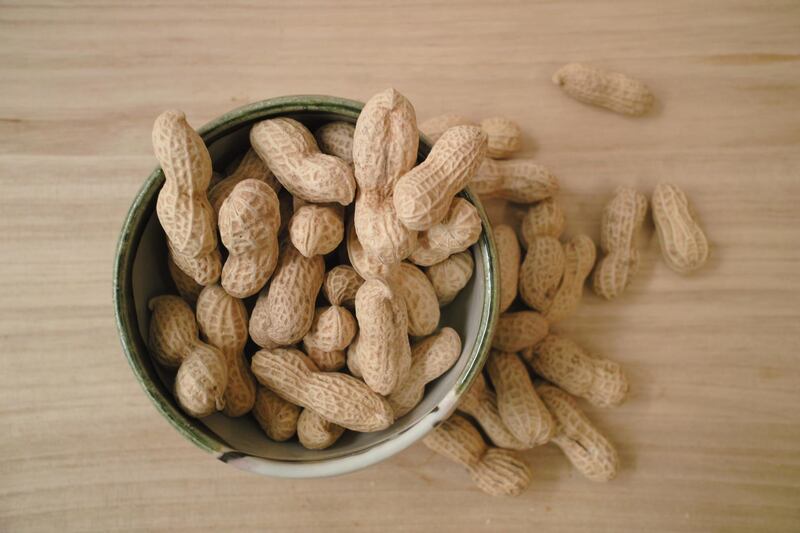Peanut allergy can be treated by slowly building up tolerance, a first-in-its-kind study showed.
As part of the PALISADE study, nearly 500 children aged four to 17 from the US and Europe took part in the test, deemed to be the largest-ever peanut allergy treatment trial.
About two-thirds (67%) of children and teenagers could tolerate at least 600mg of peanut protein after being administered an incremental quantity of peanut protein every two weeks for a period of six months before continuing on a "maintenance dose", as opposed to just four per cent of children in the control group, who had instead been administered dummy powder.
Increasing the child’s tolerance lowers the chances of an allergic reaction, which is potentially deadly.
The first medical treatment for children with peanut allergies is likely to be approved next year in the UK following a study conducted by Evelina London Children's Hospital and King's College London suggests that immunotherapy treatment could build up the necessary protection to avoid life-threatening reactions.
"Peanut allergy is extremely difficult to manage for children and their families, as they have to follow a strict peanut-free diet,” Professor George du Toit, paediatric allergy consultant at Evelina London and the study's chief investigator, said.
Families with children who suffer from sever allergy live in fear of accidental exposure.
Emily Pratt, who is six years old, can now tolerate eating about seven peanuts as a result of the cure, meaning that she can safely eat foods that contain traces of peanut.
While the new drug showed saving potentials, criticism has been voiced over the affordability of this cure, though it consists essentially of peanut flour.
Speaking on BBC radio, Emily's mum, Sophie, said the allergy has " been a constant stress.”
"We were quite shocked how you could find traces of peanuts and nuts in all sorts of food, particularly foods that are childhood foods - cakes, biscuits, ice-creams - and that's what was stressful,” she said.
"Her allergy was very severe, so even a small amount of peanut could lead to a very serious reaction.”
____________________
[ UAE Weather: Dust levels to rise sharply leaving allergy sufferers frustrated ]
[ Junior EpiPen shortage putting children's lives at risk, say parents ]






